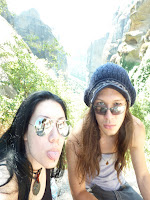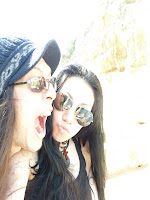




UNESCO World Heritage List Criteria:
Cultural


I. To represent a masterpiece of human creative genius. -> CHECK
II. To exhibit an important interchange of human values, over a span of time or within a cultural area of the world, on developments in architecture or technology, monumental arts, town planning or landscape design. -> CHECK
IV. To be an outstanding example of a type of building, architectural or technological ensemble, or landscape which illustrates (a) significasnt stage(s) in human history. -> CHECK
V. To be an outstanding example of a human settlement, land-use or sea-use which is representative of a culture (or cultures) or human interaction with the environment, especially when it has become vulnerable under the impact of irreversible change. -> CHECK
Natural


II. To exhibit an important interchange of human values, over a span of time or within a cultural area of the world, on developments in architecture or technology, monumental arts, town planning or landscape design. -> CHECK
IV. To be an outstanding example of a type of building, architectural or technological ensemble, or landscape which illustrates (a) significasnt stage(s) in human history. -> CHECK
V. To be an outstanding example of a human settlement, land-use or sea-use which is representative of a culture (or cultures) or human interaction with the environment, especially when it has become vulnerable under the impact of irreversible change. -> CHECK
Natural


VII. To contain superlative natural phenomena or areas of exceptional natural beauty and aesthetic importance. -> CHECK
In the north western part of Thessaly/Θεσσαλία, the part of Greece from where a band of heroes called the Argonauts/Αργοναύτες -because their ship was named Argo/Αργώ-, including:
- Jason/Ιάσων: Leader of the Argonauts and prince of Thessaly who was challenged by his treacherous uncle, who had usurped the throne, to retrieve the Golden Fleece, a sacred relic, and thus prove he is worthy of the throne.
- Hercules/Ηρακλής: Demigod most famous for successfully completing 12 über difficult labours as a form of penance.
- Theseus/Θησέας: Legendary founder-king of Athens who slayed the Minotaur, a half-man half-bull beast who at 9 year intervals devoured 7 athenian boys and 7 athenian girls as a blood tax because Cretans had pawned the Athenians at war.
- Castor/Κάστωρ and Pollux/Πολυδεύκης: Badass hunter twin brothers only one of whom was immortal (Pollux). Such was the brotherly love that when Castor was fatally wounded in a battle, Pollux asked Zeus to give Castor half of his immortality... Zeus made them the two brightest stars of the stellar constellation known as ..Gemini.
- Orpheus/Ορφέας: Son of the muse Calliope/Καλλιόπη (the muse of heroic poetry -Homer's muse), A+ class singer and perfecter of the lyre. Such an awesome pimp indeed that he could divert the course of rivers with his music, not to mention the fact that he went to the underworld (because his songs about his wife's (Eurydice/Ευρυδίκη)death were so sad that made gods weep and allow him to travel to the underworld to try and get her back; he indeed managed to soften with his music the heart of Hades who agreed to let both of them go only if Orpheus would walk in front of her and not look back until they were both on the upper world ..he looked back the moment he got on the upper world and lost her forever) and returned.
- Calais/Καλάις and Zetes/Ζήτης: Known as the Boreads, sons of Boreas, the north wind, they had the ability to fly and engaged in dogfights with the harpies.
- Peleus/Πηλέας: King of the Myrmidons and father of Achilles.
set sail to retrieve the Golden Fleece/χρυσόμαλλον δέρας (= fleece of a gold-haired, winged ram; it's story is current to the times of Homer) according to ancient greek mythology,
a complex of towering rocks (a now renowned international venue for rock climbing)
with byzantine monasteries

 built on top of them, is known as
built on top of them, is known as
"Meteora" (=suspended in the air).
a complex of towering rocks (a now renowned international venue for rock climbing)

with byzantine monasteries


 built on top of them, is known as
built on top of them, is known as"Meteora" (=suspended in the air).
The first hermits came to Meteora in the 9nth century and in the centuries to follow a monastic state formed, monasteries were built and beautified (24 originally, only 6 remain today) and a period of prosperity when Code Writing schools operated enabling educated monks to copy handwritten codes came prior to a period of decline when Meteora where turned into places of exile for those who were convicted by the Ottoman government (by the way, one must stress the importance of orthodox christianity institutions during the ottoman oppression, because hehe the greek language was preserved along with the orthodox faith inside the monasteries, an important factor to making sure Greeks kept their national consciousness through 400 years of oppression).
The original means of access to the monasteries, were either long ladders lashed together or large nets -> "the net in which intrepid pilgrims were hoisted up vertically alongside the 373 meters cliff where the Varlaam monastery dominates the valley symbolizes the fragility of a traditional way of life that is threatened with extinction" [UNESCO]. In 1995, Meteora were declared by state law "a place holy, immutable and inviolable"...
We spent two days exploring the area and visited the "Great Meteoron", the oldest monastery, which was founded in the mid-14nth century and flourished in the mid-16nth century, eventually becoming the most powerful of all the monasteries in Meteora.




I really enjoyed this trip, however, it has to be stated that the holy vibes didn't quite affect us on our first night at Kalambaka (the town closer to Meteora), since we made sure we will be remembered for a while there, by basically being two loud Asians strutting around the town center.. one of them in an improvised mankini... *sigh* ...I wasn't even drunk. Both fortunately and unfortunately, photographic material of this doesn't exist. I think it was way too early for me to feel at ease with my co-traveller's massive amount of social retardation...
Of course later on, running in a birthday suit on rooftops somewhere in the industrial zone of Hamburg would take place. That time, I would be the one provoking it. And photographic evidence does exist...
To be continued...
To be continued...

Meteora -DoSu'10 by The Schismarch is licensed under a Creative Commons Attribution-NonCommercial-NoDerivs 3.0 Greece License.
















No comments:
Post a Comment